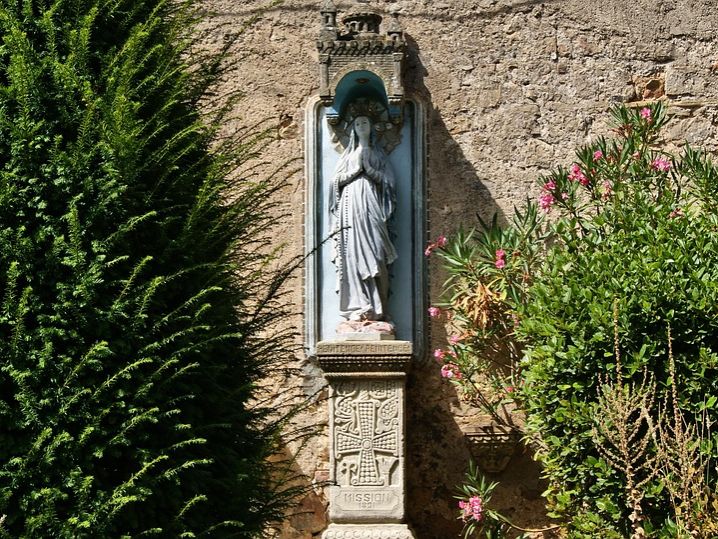Is the French State Really ‘Secular’? Some Reflections on Municipal Laïcité
| Date: | 18 June 2018 |
| Author: | Dr. Julia Martínez-Ariño |
How is laïcité – official state secularism – practiced in contemporary France? In this post, the Centre for Religion, Conflict and Globalisation’s Dr. Julia Martínez-Ariño discusses recent research in the cities of Rennes, Bordeaux and Toulouse to suggest that laïcité takes many forms in French municipalities – including the recognition and support of ‘religious’ actors and institutions.
Abortion in Northern Ireland – A ‘Religious’ Problem?
| Date: | 01 June 2018 |
| Author: | Januschka Schmidt |
Is membership of a ‘religious’ community a good predictor of one’s views on abortion? In light of last week’s referendum on abortion in the Republic of Ireland, Januschka Schmidt reflects on the situation north of the border, where official church teaching and local attitudes appear increasingly out of step.
No More “Harmful Traditional Practices”! Gender Activism and Faith Leaders in International Development
| Date: | 02 May 2018 |
| Author: | Religion Factor |
Researchers from the University of Groningen and the University of Stellenbosch recently concluded a one-year study on the role of faith leaders in challenging gender-based violence and gender inequality. The study, “Working effectively with faith leaders to challenge harmful traditional practices,” explores faith leaders’ roles in challenging gender-based violence and made recommendations for how the faith dimensions in development work can be taken seriously (rather than merely instrumentalised).
Circumscribing the Body Politic: Circumcision, Religious Freedom and Identity in Europe
| Date: | 29 March 2018 |
| Author: | Méadhbh McIvor |
In February 2018, Icelandic Member of Parliament Silja Dögg Gunnarsdóttir made international news by proposing a bill that would criminalise the circumcision of male children for non-medical reasons. The bill, which is supported by the ruling Progressive Party and Left-Green coalition, has sparked heated debates within Iceland (and beyond): while its supporters argue that circumcision is akin to child abuse, and ought, therefore, to be subject to the penalties of criminal law, its opponents point to the particular burden the law would place on Jewish and Muslim families seeking to parent within their respective religious traditions.
The Power to Call for ‘Inclusion Riders’: Violence and Innocence in Gender Activism
| Date: | 08 March 2018 |
| Author: | Dr Brenda Bartelink |
In a post to mark International Women’s Day, Dr Brenda Bartelink problematizes the selective language of ‘harmful cultural practices’, challenging the development sector to confront its ongoing colonial biases as it seeks to improve the lives of women and girls.
Saints of the Shaking Earth
| Date: | 10 January 2018 |
| Author: | Dr. Alanna Cant |
We start the new year with a post by Dr Alanna Cant. Drawing on recent fieldwork in Oaxaca, Mexico, Cant explores church-state relations through the lens of church restoration, religious ‘heritage’, and popular devotion to the saints.
The Lived Religion Project
| Date: | 18 December 2017 |
| Author: | Drs Fernande Pool and Timothy Stacey |
Drs Fernande Pool and Timothy Stacey (see bio’s at end of this post) have recently launched the Lived Religion Project (http://livedreligionproject.com/), a story project focusing on the ‘religious’ lives of ordinary people.
Why Justice Requires More than a Verdict: Religion and Reconciliation in Bosnia and Herzegovina
| Date: | 15 December 2017 |
| Author: | Sanne Hupkes |
In today’s post, Sanne Hupkes reflects on the International Criminal Tribunal for the former Yugoslavia's (ICTY) trial of Ratko Mladic. Sanne is a PhD student whose research focuses on the role of (power-sharing) democracy in peace operations. She is concerned with the place of (religious) collective identities within democracy in post-conflict societies. Bosnia-Herzegovina is one of the sites of her research.
The Necessary Complexity of Freedom of Religion or Belief
| Date: | 27 November 2017 |
| Author: | Gary McLelland |
How does the law shape the category of (free) religion, and by which mechanisms does this shaping occur? Building on conversations started at the Centre for Religion, Conflict and Globalisation’s recent conference, ‘Reimagining Difference: Being, Thinking and Practicing Beyond Essentialism’, this collaborative Religion Factor and Religion: Going Public blog series explores law’s approach to – and creation of – religion and religious liberty. In our final post, Gary McLelland of the International Humanist and Ethical Union (IHEU) mounts a defence of the necessary complexity of freedom of religion or belief from the perspective of a human rights practitioner.
Silent Borders
| Date: | 20 November 2017 |
| Author: | Lourdes Peroni |
How does the law shape the category of (free) religion, and by which mechanisms does this shaping occur? Building on conversations started at the Centre for Religion, Conflict and Globalisation’s recent conference, ‘Reimagining Difference: Being, Thinking and Practicing Beyond Essentialism’, this collaborative Religion Factor and Religion: Going Public blog series explores law’s approach to – and creation of – religion and religious liberty. In this post, Lourdes Peroni examines the enforcement of unspoken normative borders by administrative bodies and lower courts.




